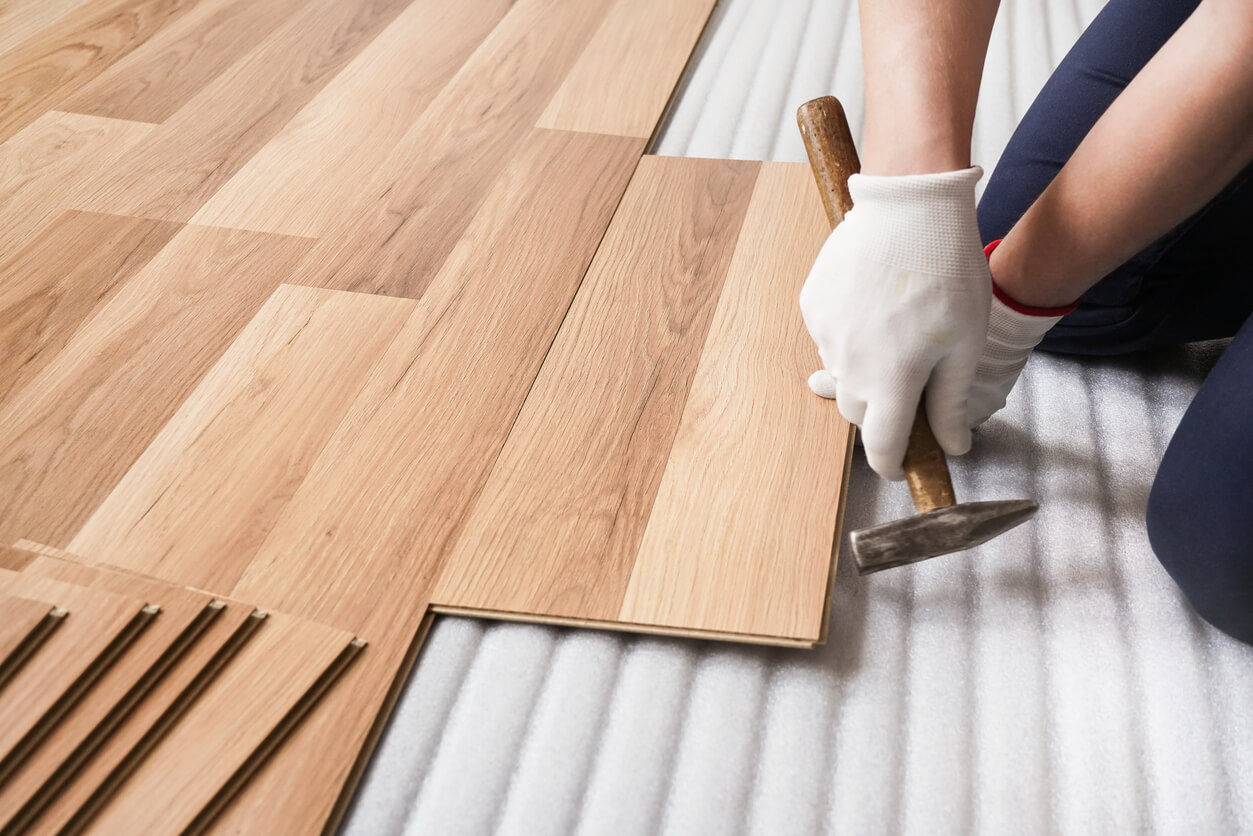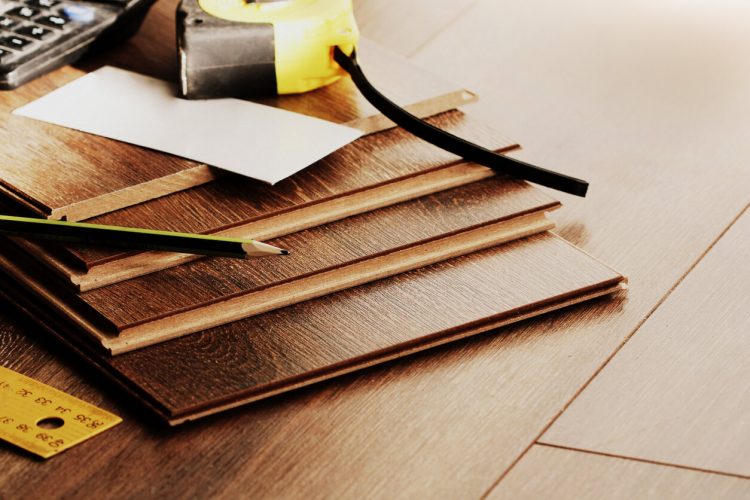Everything You Need to Know About Floating Floors
- Published By: District Floor Depot

Floating floors are very similar to jigsaw puzzles in how the pieces click together to form one cohesive, immovable whole. If it weren’t for walls being in the way, you could conceivably pick up the entire floor and move it to another room. This makes floating floors different from traditional floors that are either nailed or glued in place, one board or tile at a time.
Why Are They Called “Floating Floors”?
‘Floating’ refers to the fact that the floor isn’t directly attached to the subfloor by either nailing or by gluing it down. It simply rests or ‘floats’ on top of a properly prepared subfloor. A noise-absorbing cork or foam underlayment may also be placed under the new flooring to help reduce noise as you walk across the floor. Some floating floors have the underlayment already attached to each individual piece of flooring.
This makes installation somewhat easier and quicker than other types of quality flooring. The installation of a floating floor also generally costs quite a bit less than installing similar types of flooring using traditional methods.
The Benefits of a Floating Floor
Room humidity tends to vary because of changing weather conditions. Those changes in humidity can cause wood floors to expand and contract. This expanding and contracting can cause buckling and warping of boards that are glued or nailed down. After all, they have no other way to move!
Since a floating floor isn’t anchored in place, humidity doesn’t affect it as much as it does wooden floors that are static. A floating floor can expand and contract during changing weather without harm.
It’s easier to replace a portion of a floating floor that is damaged than it is to replace flooring that is glued down. Glued floors are notoriously difficult to pry up, whether it’s one piece or the entire floor.
When it’s time to replace a floor, removing a floating floor is as easy as installing it in the first place. Unlike nailed or glued options, you won’t have to tediously pry up nails or forcefully separate glued tiles from the subfloor. This results in much less mess, noise, and disruption within your home. It’s also much quicker.
Different Types of Floating Floors
There are several types of floating floors from which to choose. Your choice will depend in large part on your budget, design aesthetic, the architectural style of your particular home, and where you intend to put the floating floor in your home.
Tongue and Groove Wood
This type of floating floor may be made of real hardwood or ‘engineered’ wood flooring. The latter refers to molded or pressed wood that is topped by a thin layer of real wood veneer. Engineered wood flooring is generally less prone to water damage when installed in kitchens, bathrooms, or basements.
Both types of wood flooring can be sanded and refinished when worn in order to make them look like new. Since hardwood floors are solid all the way through, they can stand being refinished several times. The thin veneer on an engineered floor can usually be sanded and refinished once or possibly twice.
Bamboo
Bamboo is a durable, environmentally-friendly flooring option. Like hardwoods, bamboo flooring is durable enough to stand up to repeated sanding and refinishing. Since it’s a fast-growing grass rather than a much slower-growing tree, bamboo flooring is typically less expensive than a similar quality hardwood.
Bamboo flooring is available in a variety of different grain orientations, colors, and finishes. There’s sure to be one that you’ll love, especially if you live in a contemporary home!
Resilient Vinyl Tile (SPC or WPC)
Advanced manufacturing technologies and superior materials make resilient vinyl tile a far cry from the tile of a few decades ago. These vinyl tiles offer the look of wood or stone with improved durability and comfort underfoot. They’re also highly water-resistant and easy to clean. They truly deserve their appellation of luxury vinyl tiles!
Vinyl plank flooring mimics the look of wood plank flooring while other vinyl options strongly resemble stone tiles. Until you step on them with bare feet, that is! Unlike hard, cold stone, the vinyl version is soft and room temperature underfoot.

Stone Polymer Composite (SPC) flooring is a type of luxury vinyl tile that has a stiffer backing. This backing is composed of limestone powder mixed with polymer stabilizers. This rigid, extremely dense backing allows this type of vinyl tile to handle a floating installation. Another type of vinyl flooring stiff enough to float is known as Wood Plastic Composite (WPC).
Floating Floors Offer Tremendous Design Flexibility
The enormous number of choices available make floating floors a designer’s dream. Besides real hardwoods, engineered wood, and bamboo, there is a myriad of choices available in luxury vinyl tile floating floors. Choose from the look of stone, ceramic tile, or even metal. Hundreds of choices make finding the exact right look for your unique home possible.
We understand that having so many choices can be a bit daunting. That’s why our flooring experts are always happy to help guide you in choosing the right flooring for you, your lifestyle, and your home. We’ll even bring samples of your favorites to your home so that you can see them in place.
If you have any questions about flooring, never hesitate to ask! Our flooring experts are always happy to answer your questions either in one of our stores or on-site. We also offer online consultations with one of our experienced flooring professionals to discuss whether a floating floor is right for your home.
Let Us Install Your New Floating Floor
At District Floor Depot, we are experts in all types of floor installations, including floating floors. Our local experts have a proven track record of quality flooring installations. We have the expertise and experience to handle all of your hardwood, engineered hardwood, luxury tile, or renewable flooring and installation needs. Contact us so that we can discuss your floating floor installation today!
